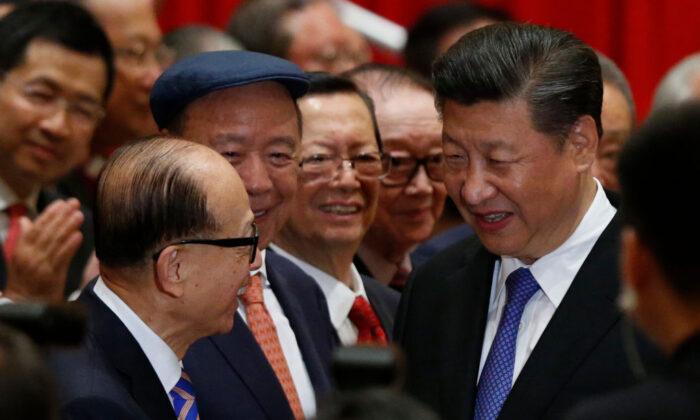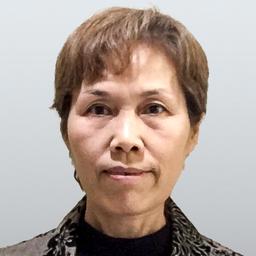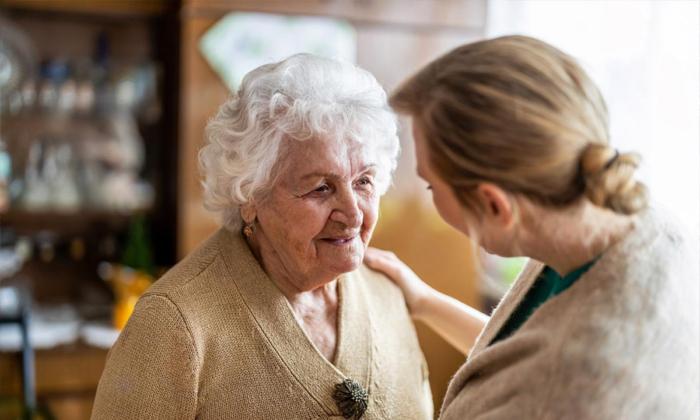A recent photo of Li Ka-shing, Hong Kong’s richest man, receiving a Pfizer COVID-19 vaccine instead of a China-made alternative has drawn renewed attention to the relationship between Li and the Chinese Communist Party (CCP).
However, people noticed that the 92-year-old Li chose not to get the China-made Sinovac vaccine that the Hong Kong government has been pushing.
Prior to Hong Kong’s mass protests, Li had been a longtime favorite of the CCP, with the Party seeking his help to expand its influence. He not only invested heavily in mainland China, but also helped the CCP to secure many international projects.
Li’s Organization Excluded From New Electoral Committee
Earlier this month, Hong Kong began to implement reforms approved by the CCP’s National People’s Congress for the city’s electoral system, widely seen as a move by the CCP to marginalize the local business elite.The new rules reduce the number of directly elected lawmakers to the city’s Legislative Council, while expanding the total number of seats to 90 from 70, as well as boosting membership on Hong Kong’s electoral commission, which selects the city’s chief executive, to 1,500 from 1,200.
A day after Beijing’s rubber-stamp legislature approved the new “patriot” election law, the pro-Beijing Hong Kong government under Chief Executive Carrie Lam took the lead in actively stating its support. But of the four major property developers in Hong Kong, Li’s CK Hutchison Holdings Ltd. was a day late to express its support, making its position known on April 1—April Fool’s Day.
Meanwhile, as many “patriotic and Hong Kong-loving organizations” were added to the newly expanded electoral commission, the Federation of Hong Kong Chiu Chow Community Organizations—of which Li is honorary president—was excluded.
Li Had Pivotal Role in CCP’s Global Investment Projects
The CCP has been using Hong Kong’s capital to invest in its strategic projects around the world. As Hong Kong’s richest man, Li could hardly avoid the fate of acting as an agent for the CCP’s global expansion.Had that bid not failed, CK Hutchison would have controlled nearly a quarter of Israel’s water industry; desalination is a key project in the CCP’s “Made in China 2025” program. The plant’s proximity to an empty military base and nuclear research facilities was another reason for the strong opposition by Israel’s defense minister.
Back in 1997, Li’s Hutchison Whampoa acquired the 25-year rights to operate two major ports on the Panama Canal—one of the world’s major trade routes. Hutchison Whampoa also has invested heavily in development near the ports.
That set off alarm bells in U.S. security circles because of Li’s personal friendship with several top Chinese officials, including senior figures in the People’s Liberation Army.
“With the exit of American security forces, the situation in Panama is deteriorating,“ then-Rep. Dana Rohrabacher of California said at the hearing. ”I recently visited Panama and it was very evident. The mainland Chinese criminal triad gangs, some of whom have ties to Chinese intelligence agencies, are active throughout Panama.”
The year that Hutchison Whampoa acquired the ports, Panama broke off diplomatic relations with Taiwan and switched its alliance to the CCP.
In its investigation into the CCP’s attempts to influence the 1996 U.S. presidential campaign, the U.S. Senate Government Affairs Committee identified CRE as a conduit for “espionage—economic, political and military—for China.”
Li’s Long-Standing Relationship With CCP
The relationship between the Li family and the CCP began during the Deng Xiaoping era, and entered a honeymoon period after Jiang Zemin took power, when he received special treatment because of his investments in China.Jiang “expressed deep sympathy and indignation,” and ordered Cheung arrested.
The CCP police in Guangdong successfully found and caught Cheung, who was later sentenced to death and executed at gunpoint on Dec. 5, 1998.
During the 2019 anti-extradition protests, the CCP forced Hong Kong’s elite from all walks of life to show support for the CCP’s crackdown. Almost all Chinese language newspapers in Hong Kong, with the exception of Apple Daily and The Epoch Times, published pro-CCP content.
The advertisement was widely interpreted to be a subtle shoutout to Beijing.
On May 27 last year, the Hong Kong newspaper Ta Kung Pao asked Li about his attitude toward the CCP’s intention to enact the Hong Kong national security law.
He responded, “I hope the passage of the national security law will ease the Central Government’s worries about Hong Kong and play a positive role in long-term stability and development; the government of the Hong Kong Special Administrative Region is duty-bound to consolidate Hong Kong people’s confidence in ‘one country, two systems’ and strengthen the trust of the international community.”
But the next day, the Ta Kung Pao report, titled “Li Ka-shing: National Security Law Plays a Positive Role in Long-Term Stable Development,” described Li’s hopes for the national security law as certainty.
‘Don’t Let Li Ka-shing Run Away’
Since 2013, Li has been selling assets in China and Hong Kong, cashing in at least HK$250 billion (US$32.19 billion). The sales include Beijing Pacific Century Place, Metropolitan Plaza in Guangzhou, the Oriental Financial Center in Shanghai, Shanghai Shengbang International Building, his property in Hong Kong, and his 20 percent stake in Hongkong Electric.The article begins: “Business is like a stream of water in the first place, and it is the nature of capital to seek profit. Li can go wherever he wants to go. However, given the nature of how Li gained his wealth in China in the last two decades, his affairs seem to be more than simply business. As we all know, in China, the real estate industry is very close to power. Without power resources, it is impossible to do real estate business. The wealth of real estate, thus, does not come entirely from a thoroughgoing market economy. In this regard, it is inappropriate for Li Ka-shing to just run away as long as he wants to.”
The article asserted that as a person who has gained much from his partnership with China, Li had three missions to fulfill before he could turn his back on China:
1. Paying back the poor by being responsible to society.
2. Stabilizing Hong Kong and assuming the responsibility of a business leader.
3. Doing more good deeds, and running businesses for society.
The article reads: “A group of businessmen led by Li Ka-shing, who enjoyed the dividends of China’s reform and opening up, started to cash out in the process of China’s economic transformation and upgrading. There is nothing wrong for businessmen to pursue profits, but don’t let those businessmen who used all the under-the-table rules to gain profits to damage the credit of business and erode the foundation of China’s economy.”





